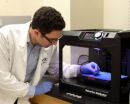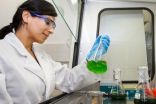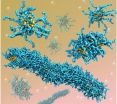(Press-News.org) Which shirt do we put on in the morning? Do we drive to work or take the train? From which takeaway joint do we want to buy lunch? We make hundreds of different decisions every day. Even if these often only have a minimal impact, it is extremely important for our long-term personal development to make decisions that are as optimal as possible. People with ADHD often find this difficult, however. They are known to make impulsive decisions, often choosing options which bring a prompt but smaller reward instead of making a choice that yields a greater reward later on down the line. Researchers from the University Clinics for Child and Adolescent Psychiatry, University of Zurich, now reveal that different decision-making processes are responsible for such suboptimal choices and that these take place in the middle of the frontal lobe.
Mathematical models help to understand the decision-making processes
In the study, the decision-making processes in 40 young people with and without ADHD were examined. Lying in a functional magnetic resonance imaging scanner to record the brain activity, the participants played a game where they had to learn which of two images carried more frequent rewards. In order to understand the impaired mechanisms of participants with ADHD better, learning algorithms which originally stemmed from the field of artificial intelligence were used to evaluate the data. These mathematical models help to understand the precise learning and decision-making mechanisms better. "We were able to demonstrate that young people with ADHD do not inherently have difficulties in learning new information; instead, they evidently use less differentiated learning patterns, which is presumably why sub-optimal decisions are often made", says first author Tobias Hauser.
Multimodal imaging affords glimpses inside the brain
In order to study the brain processes that triggered these impairments, the authors used multimodal imaging methods, where the participants were examined using a combined measurement of functional magnetic resonance imaging (fMRI) and electroencephalography (EEG) to record the electrical activity and the blood flow in the brain. It became apparent that participants with ADHD exhibit an altered functioning in the medial prefrontal cortex – a region in the middle of the frontal lobe. This part of the brain is heavily involved in decision-making processes, especially if you have to choose between several options, and in learning from errors. Although a change in activity in this region was already discovered in other contexts for ADHD, the Zurich researchers were now also able to pinpoint the precise moment of this impairment, which already occurred less than half a second after a feedback, i.e. at a very early stage.
Psychologist Tobias Hauser, who is now researching at the Wellcome Trust Centre for Neuroimaging, University College London, is convinced that the results fundamentally improve our understanding of the mechanisms of impaired decision-making behavior in people with ADHD. The next step will be to study the brain messenger substances. "If our findings are confirmed, they will provide key clues as to how we might be able to design therapeutic interventions in future," explains Hauser.
INFORMATION:
Literature:
Tobias U. Hauser, Reto Iannaccone, Juliane Ball, Christoph Mathys, Daniel Brandeis, Susanne Walitza & Silvia Brem: Role of Medial Prefrontal Cortex in Impaired Decision Making in Juvenile Attention-Deficit/Hyperactivity Disorder, in: JAMA Psychiatry, doi: 10.1001/jamapsychiatry.2014.1093
Contacts:
Dr. Tobias Hauser
University Clinics for Child and Adolescent Psychiatry, University of Zurich, and
Wellcome Trust Centre for Neuroimaging, University College London
Phone: +44 74 749 030 03
Email: t.hauser@ucl.ac.uk
ADHD children make poor decisions due to less differentiated learning processes
2014-08-21
ELSE PRESS RELEASES FROM THIS DATE:
Learning to play the piano? Sleep on it!
2014-08-21
According to researchers at the University of Montreal, the regions of the brain below the cortex play an important role as we train our bodies' movements and, critically, they interact more effectively after a night of sleep. While researchers knew that sleep helped us the learn sequences of movements (motor learning), it was not known why. "The subcortical regions are important in information consolidation, especially information linked to a motor memory trace. When consolidation level is measured after a period of sleep, the brain network of these areas functions with ...
Electric sparks may alter evolution of lunar soil
2014-08-21
DURHAM, N.H. –- The moon appears to be a tranquil place, but modeling done by University of New Hampshire and NASA scientists suggests that, over the eons, periodic storms of solar energetic particles may have significantly altered the properties of the soil in the moon's coldest craters through the process of sparking—a finding that could change our understanding of the evolution of planetary surfaces in the solar system.
The study, published recently in the Journal of Geophysical Research-Planets, proposes that high-energy particles from uncommon, large solar storms ...
New feeding tube connectors will improve patient safety
2014-08-21
New feeding tube connectors, designed by an international standards process, will be available soon and will improve patient safety.
According to an invited review published in the OnlineFirst version of Nutrition in Clinical Practice (NCP), the official journal of the American Society for Parenteral and Enteral Nutrition (A.S.P.E.N.), the new connectors will greatly reduce the occurrence of misconnection that can be harmful and even fatal to patients.
Small-bore connectors, which are used to join medical devices, components, and accessories to deliver fluids or gases, ...
Emergency department nurses aren't like the rest of us: New study
2014-08-21
Emergency department nurses aren't like the rest of us – they are more extroverted, agreeable and open – attributes that make them successful in the demanding, fast-paced and often stressful environment of an emergency department, according to a new study by University of Sydney.
"Emergency nurses are a special breed," says Belinda Kennedy from Sydney Nursing School, a 15 year critical care veteran who led the study.
"Despite numerous studies about personalities of nurses in general, there has been little research done on the personalities of nurses in clinical specialty ...
Louisiana Tech University researchers use 3D printers to create custom medical implants
2014-08-21
RUSTON, La. – A team of researchers at Louisiana Tech University has developed an innovative method for using affordable, consumer-grade 3D printers and materials to fabricate custom medical implants that can contain antibacterial and chemotherapeutic compounds for targeted drug delivery.
The team comprised of doctoral students and research faculty from Louisiana Tech's biomedical engineering and nanosystems engineering programs collaborated to create filament extruders that can make medical-quality 3D printing filaments. Creating these filaments, which have specialized ...
Water and sunlight the formula for sustainable fuel
2014-08-21
An Australian National University (ANU) team has successfully replicated one of the crucial steps in photosynthesis, opening the way for biological systems powered by sunlight which could manufacture hydrogen as a fuel.
"Water is abundant and so is sunlight. It is an exciting prospect to use them to create hydrogen, and do it cheaply and safely," said Dr Kastoori Hingorani, from the ARC Centre of Excellence for Translational Photosynthesis in the ANU Research School of Biology.
Hydrogen offers potential as a zero-carbon replacement for petroleum products, and is already ...
Researchers develop models to study polyelectrolytes, including DNA and RNA
2014-08-21
Researchers from North Carolina State University have developed a novel and versatile modeling strategy to simulate polyelectrolyte systems. The model has applications for creating new materials as well as for studying polyelectrolytes, including DNA and RNA.
"Our new technique allows us to model much larger and more complex polyelectrolyte systems, and to do so much more quickly," says Nan Li, lead author of a paper on the work and a Ph.D. student in NC State's Department of Materials Science and Engineering. "This is a big step forward for this field."
Polyelectrolytes ...
Adherence to diet can be measured from blood
2014-08-21
New results from the Nordic SYSDIET study show that it's possible to assess dietary compliance from a blood sample. This is especially useful in controlled dietary intervention studies investigating the health benefits of specific diets. So far, such studies have mainly relied on the participants' self-reported dietary intake, which is often biased, making it more difficult to assess the real health benefits.
In the recently published study authored by Dr Matti Marklund and coworkers, the researchers were able to identify the study participants with the greatest apparent ...
A novel pathway for prevention of heart attack and stroke
2014-08-21
Finnish researchers have found that the low-expression variant of fatty acid-binding protein 4 (FABP4), which is particularly common among Finns, reduces the risk of heart attack and stroke. The finding revealed a promising new way to customise a potentially preventive drug for atherosclerosis.
Led by Professor Perttu Lindsberg, the long-term research project of the Department of Neurology at the Hospital District of Helsinki and Uusimaa (HUS) focuses on carotid atherosclerosis. It is a joint effort involving the University of Helsinki, the Helsinki University Central ...
Feeling bad at work can be a good thing (and vice versa)
2014-08-21
LIVERPOOL, UK – 05 August 2014: Research by the University of Liverpool suggests that, contrary to popular opinion, it can be good to feel bad at work, whilst feeling good in the workplace can also lead to negative outcomes.
In a Special Issue published in Human Relations, Dr Dirk Lindebaum from the University's Management School, together with his co-author Professor Peter Jordan, developed a new line of study, and commissioned research to further explore the role of emotions in the workplace.
They found that the commonly-held assumption that positivity in the workplace ...


